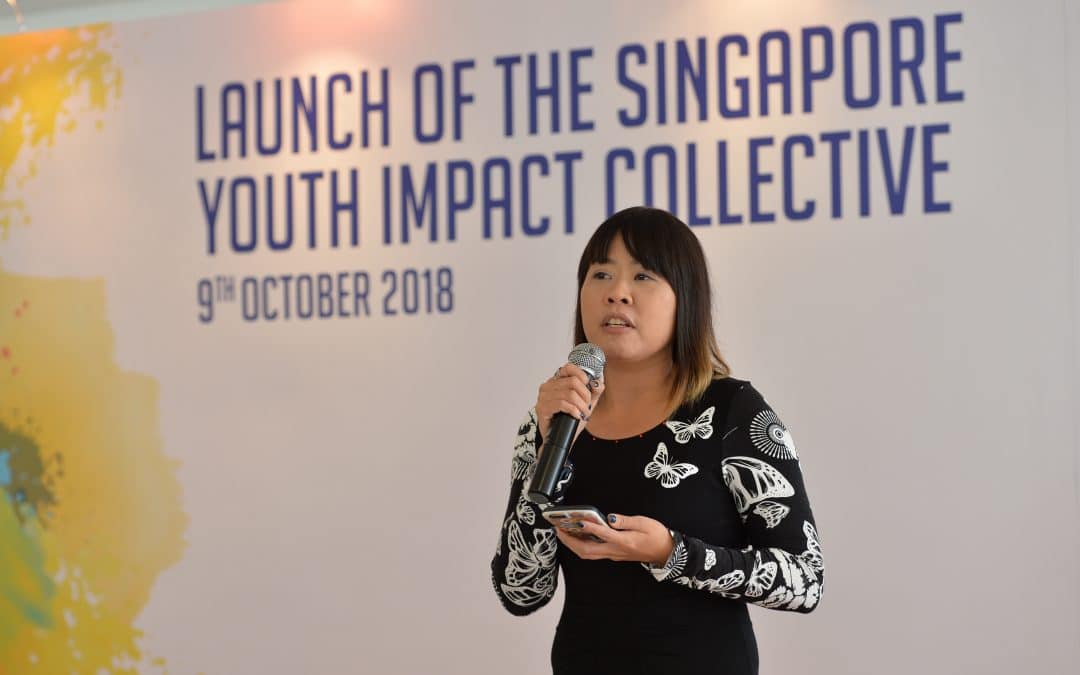Collaborative giving: How it creates social change


Ubuntu– it’s an ancient and beautiful concept from South Africa often used today to convey how a community is the building block of society. In South Africa, it simply means: “I am, because of you.”
Today, with technology and the lean towards strategic, outcome-focused giving, the spirit of ubuntu endures in the form of collaborative giving. Giving together is rapidly gaining traction as people recognise the complexity of social issues and the need for many helping hands.
Collaborative giving can take different forms, but it simply describes individuals coming together to pool their time, treasure or talent towards creating social change. Each model of collaborative giving differs with regards to the level of collaboration and involvement partners exert to achieve a certain outcome.
A spectrum of giving models
Online giving platforms and group funding opportunities empower a wide spectrum of donors to easily contribute to a cause, without requiring further engagement. Giving circles offer members a platform to get more involved, where members not only pool resources but meet to learn about social issues for more informed decision-making.
On the other end of the spectrum is collective impact – a specific model of collaboration that offers the greatest potential for social impact when harnessed well. Here, major actors from different sectors commit to a specific agenda for solving a particular social issue. Collective impact initiatives are distinct from other forms of partnerships because they share a centralised infrastructure, a common agenda and shared system of measurement, and continuous communication amongst partners.
Empowering collective giving
At the Community Foundation of Singapore (CFS), we count it as our mission to enable donors to learn and tap on these different models of collective giving.
In 2018, the Singapore Youth Impact Collective became the first local initiative to adopt the collective impact model for tackling a social issue. Several multi-sector partners – with CFS as the backbone organisation – are working together to help disadvantaged youth transit more successfully to work-life. The collective was formed when its members participated in Colabs, a philanthropic initiative by CFS and the National Volunteer and Philanthropy Centre intended to deepen understanding and drive collaboration towards addressing community needs.
Over the years, we have also grown our Community Impact Funds which support under-served causes and are open to givers from all walks of life. While collaboration may be the way forward for larger scale change, we believe fundamentally in the strength of giving as a community, for the community.
By putting the opportunity for social change back into our own hands, we hope to nurture the spirit of ubuntu, of interconnectedness and shared humanity – and we sincerely hope you pass the flame on too.
Joyce Teo
Deputy CEO
Community Foundation of Singapore
Ubuntu– it’s an ancient and beautiful concept from South Africa often used today to convey how a community is the building block of society. In South Africa, it simply means: “I am, because of you.”
Today, with technology and the lean towards strategic, outcome-focused giving, the spirit of ubuntu endures in the form of collaborative giving. Giving together is rapidly gaining traction as people recognise the complexity of social issues and the need for many helping hands.
Collaborative giving can take different forms, but it simply describes individuals coming together to pool their time, treasure or talent towards creating social change. Each model of collaborative giving differs with regards to the level of collaboration and involvement partners exert to achieve a certain outcome.
A spectrum of giving models
Online giving platforms and group funding opportunities empower a wide spectrum of donors to easily contribute to a cause, without requiring further engagement. Giving circles offer members a platform to get more involved, where members not only pool resources but meet to learn about social issues for more informed decision-making.
On the other end of the spectrum is collective impact – a specific model of collaboration that offers the greatest potential for social impact when harnessed well. Here, major actors from different sectors commit to a specific agenda for solving a particular social issue. Collective impact initiatives are distinct from other forms of partnerships because they share a centralised infrastructure, a common agenda and shared system of measurement, and continuous communication amongst partners.
Empowering collective giving
At the Community Foundation of Singapore (CFS), we count it as our mission to enable donors to learn and tap on these different models of collective giving.
In 2018, the Singapore Youth Impact Collective became the first local initiative to adopt the collective impact model for tackling a social issue. Several multi-sector partners – with CFS as the backbone organisation – are working together to help disadvantaged youth transit more successfully to work-life. The collective was formed when its members participated in Colabs, a philanthropic initiative by CFS and the National Volunteer and Philanthropy Centre intended to deepen understanding and drive collaboration towards addressing community needs.
Over the years, we have also grown our Community Impact Funds which support under-served causes and are open to givers from all walks of life. While collaboration may be the way forward for larger scale change, we believe fundamentally in the strength of giving as a community, for the community.
By putting the opportunity for social change back into our own hands, we hope to nurture the spirit of ubuntu, of interconnectedness and shared humanity – and we sincerely hope you pass the flame on too.
Joyce Teo
Deputy CEO
Community Foundation of Singapore
- Related Topics For You: COLLECTIVES, DONOR STORIES, INCLUSIVITY & INTEGRATION, OPINION, SINGAPORE YOUTH IMPACT COLLABORATIVE, YOUTH


